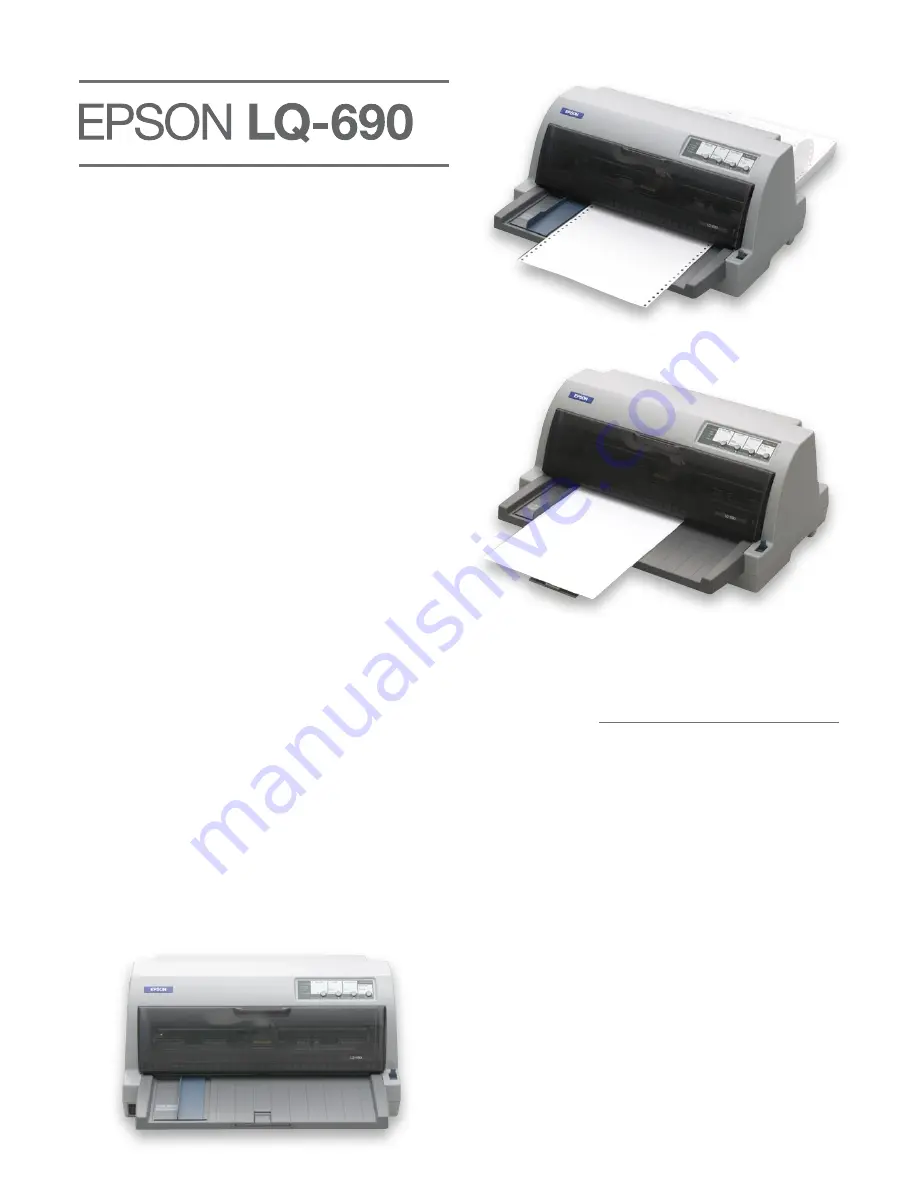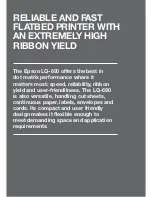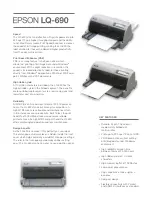
speed
The LQ-690 is fast and effective with print speeds of up to
529 cps (12 cpi), higher throughput speed and the ability
to handle different media. Print Speed Enhancer increases
the speed of bit image printing, making the LQ-690 the
ideal solution for those who demand higher productivity
from their dot matrix printer.
print speed enhancer (pse)
PSE is a unique feature in the Epson driver which
allows fast printing of bit image data under Windows
®
environment. With a slight reduction in resolution, the
speed is increased drastically. Ideal for those printing
directly from Windows
®
applications, MS Word, MS Power
point, MS Excel and PDF documents.
High ribbon yield
At 10 million characters per ribbon, the LQ-690 has the
highest ribbon yield in the flatbed segment. The benefits
are long ribbon replacement cycles, low running cost and
lower total cost of ownership.
reliability
At MTBF (mean time between failure) of 20,000 power on
hours, the LQ-690 stands out among its competitors. A
high MTBF means less trouble and maintenance which
in turn increases your productivity. Built to last, the print
head life of 400 million strokes/wire ensures reliable
printouts. Given the high MTBF and print head life, LQ-690
offers uninterrupted operation and less maintenance.
design benefits
As the LQ-690 is compact it fits perfectly on your desk.
The platen gap adjustment lever is hidden inside the front
cover which helps avoid any accidental change in settings.
The ruler in the front paper guide makes paper setting
easy. The LQ-690 also has an easy to use operation panel.
KeY FeatUres
• Durable, 24 pin, 106 column,
medium duty flatbed dot
matrix printer
• Prints up to 529 cps (12 cpi) at HSD
• Print Speed Enhancer: Fast printing
of bit image data under Windows
®
environment
• High reliability at mean time
between failure of 20,000 hours
• High ribbon yield of 10 million
characters
• High memory buffer of 128 Kbytes
• Low power consumption
• Copy capability of one or
6 copies
• Compact design
• Flexible connectivity with Parallel
and USB 2.0 interfaces as standard






















